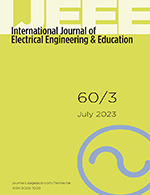Over the past year, amid announcements of thousands of retractions, journal closures and a major index delisting several titles, executives at the troubled publisher Hindawi have at various times mentioned a “new retraction process” for investigating and pulling papers “at scale.” The publisher has declined to provide details – until now.
So far in 2023, Hindawi has retracted over 8,000 articles – more than we’ve ever seen in a single year from all publishers combined. And Hindawi is not done cleaning up from paper mills’ infiltration of its special issues, according to a new report from its parent company, Wiley.
Reckoning with Hindawi’s paper mill problem has cost Wiley, which bought the open-access publisher in 2021, an estimated $35-40 million in lost revenue in the current fiscal year, Matthew Kissner, Wiley’s interim president and CEO, said on the company’s most recent earnings call. Wiley will stop using the “Hindawi” name next year, Kissner told investors.
The publisher has issued a whitepaper, “Tackling publication manipulation at scale: Hindawi’s journey and lessons for academic publishing,” which explains “what happened at Hindawi” and the process the company developed to investigate and retract thousands of articles from special issues.
Continue reading Hindawi reveals process for retracting more than 8,000 paper mill articles


